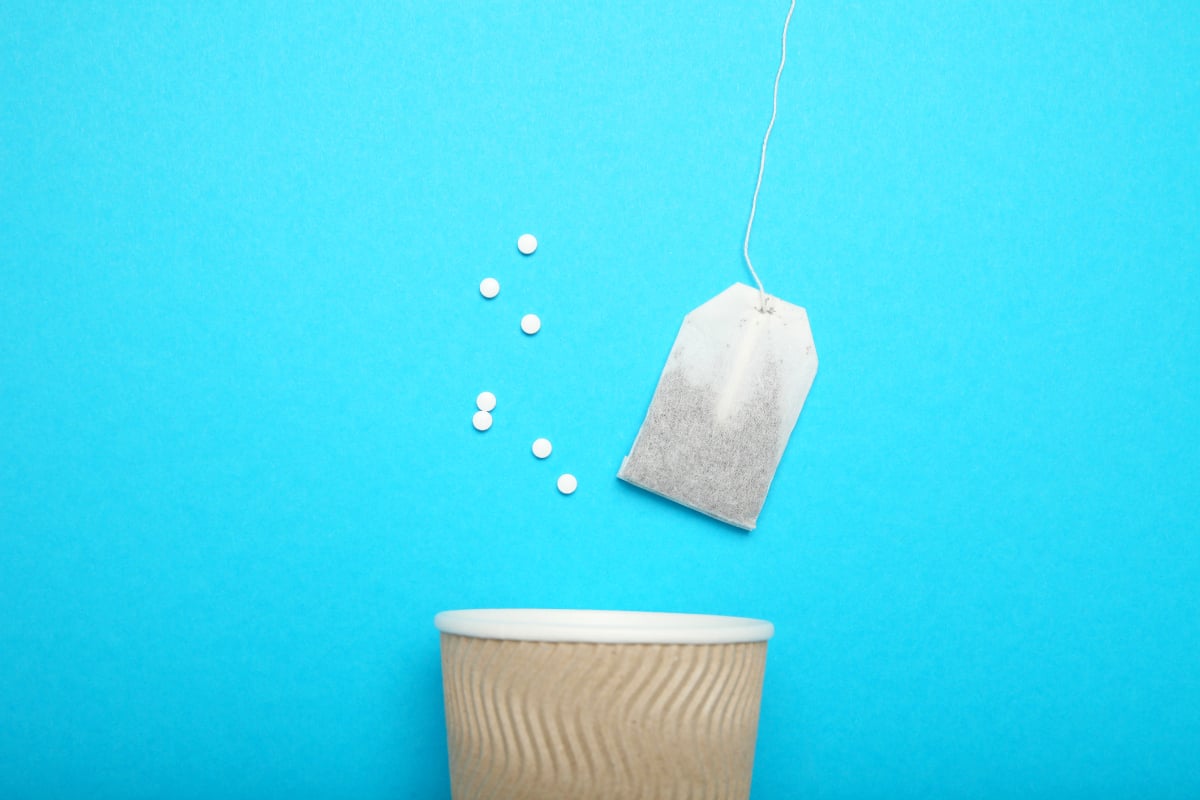
You might’ve encountered it at a friend’s house when you asked for one sugar in your tea, or on the counter top in the office kitchen. We’re talking about Stevia.
Stevia sweeteners as we know them have been popular for around a decade when they first came on the market as the low kilojoule, low carb alternative to sugar.
In many households, Stevia products have replaced all sugars. Even raw sugar.
While some people swear by Stevia, a lot of questions still remain about what’s actually in Stevia and whether it’s as ‘healthy’ as it’s marketed to be.
To find out, we asked dietitians, nutritionists and a naturopath to explain: what is Stevia, is Stevia better for you than sugar and is it safe to pop in your morning coffee.
Here are their thoughts.
What is Stevia?
“Stevia (or steviol glucosides) is an intensely sweet compound found in the leaves of the Stevia rebaudiana (Bertoni) plant, a semi tropical plant common in Paraguay and Brazil,” Anna Debenham and Alex Parker, Accredited Practising Dietitians and founders of The Biting Truth’s Nutrition Reboot Program, told Mamamia.
Modern food manufacturers then extract steviol glycosides from the leaves of the plants and refine them into a white powder or small white tablets that are the table sweeteners like Natvia, Hermesetas and SteviaSweet we’re familiar with.
Stevia vs Sugar.
We know consuming large amounts of refined sugar is detrimental to our health.
Wellness by Blair Naturopath and Nutritionist Jess Blair told Mamamia “high amounts of sugar have many negative health effects including weight gain, blood sugar problems and increased risk of heart disease”.


Top Comments
I use pure stevia glycosl... in my tea and yogurt and drinks and dsrts everyday it does not raise my sugar level even a bit and has no effect on my blood pressure either. The best Stevia I like is the one in Pink packet labeled Natvia for baking. Its pure without any other additives. I have had no side effects at all. I am a diabetic patient.
Have been using Xylitol for years, a little bit easier as it used the same as sugar.
How does it work?
Xylitol tastes sweet but, unlike sugar, it is not converted in the mouth to acids that cause tooth decay. It reduces levels of decay-causing bacteria in saliva and also acts against some bacteria that cause ear infections.